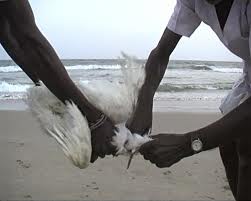The Parade of Privilege: How Government Favors Religion (Religious Privilege #2: Crime and Punishment)

Luis Granados, director of the AHA’s publishing house, Humanist Press, responds to the Catholic bishops’ Fortnight for Freedom, a 14-day campaign which, according to the Washington Post, “purports to champion religious freedom, but in actuality distorts it by promoting the use of religion as a license to discriminate.”
Religious Privilege #2: Crime and Punishment
While the bishops prattle on in their “Fortnight of Freedom” about how oppressed religion is in today’s America, the fact of the matter is that God experts occupy a lofty pedestal, with all kinds of special privileges not available to the one-third of Americans who are not religious. Yesterday we looked at the church property tax exemption, worth a cool $26 billion a year. Today, let’s look at crime and punishment.
Should people who claim to have a particular set of beliefs about supernatural spirits in the sky be subject to the same criminal laws that you and I have to obey? Of course they should. Why is this even a question?
It’s a question because the law doesn’t work that way. Take drug laws, for example. If you or I get caught with a hallucinogenic drug on the controlled substances list, we’ll go to jail. Unless we persuade the court that drug use is part of our religion, which puts us neatly above the law. That’s what the Supreme Court said in 2006 about a group claiming to be a South American Indian religion that gets high on a tea containing dimethyltryptamine, which the United States has promised by treaty to ban. Ban it we do–for the one-third of Americans who are not religious. God experts, though, get a free pass. In 2008, the Italian Supreme Court took this idea one step further, allowing Rastafarians (who regard marijuana as a sacred substance) to possess larger than otherwise permissible quantities of weed.
How about cruelty to animals? A despicable crime, anywhere you go–unless you’re a God expert, in which case murdering animals is a perfectly legal thing to do. Thus saith our Supreme Court, soon followed by a circuit court in Texas.
“Equal protection of the laws.” What a concept! Wouldn’t it be nice to have something like that in our Constitution?
Visit the American Humanist Association’s Facebook page every day beginning June 26 where we counter the Catholic bishops’ Fortnight for Freedom by posting a special privilege experienced only by churches in the United States.
